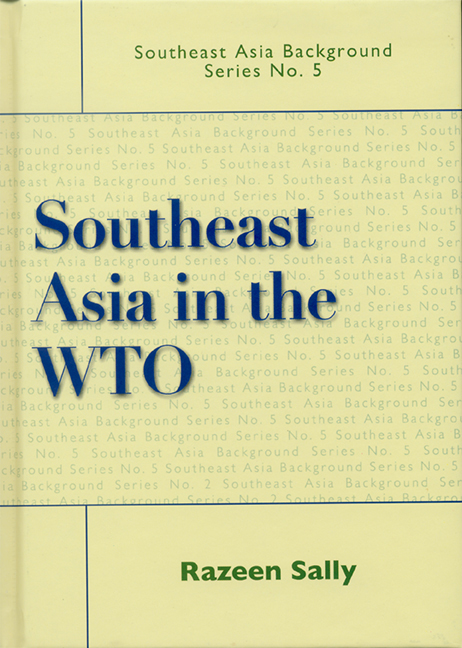8 - Southeast Asia's Future in the WTO
Published online by Cambridge University Press: 21 October 2015
Summary
The ASEAN-5 are bowling alone with different degrees of effectiveness in the WTO. Participation in the WTO is more effective than it is for the bulk of developing countries, but with big differences among the ASEAN-5. Chief among the factors hindering ASEAN co-operation in the WTO are differences in national trade policies and trade policy capacities, exacerbated by the Asian crisis, and an enlarged, internally unwieldy ASEAN with slow-moving regional economic co-operation.
Such differences were clearly on display in the Doha Round and in Cancun. This state of affairs still leaves an important question unanswered: is there room for stepped-up ASEAN co-operation in the WTO post-Cancun, especially if the Doha Round is put together again?
Even in an optimistic scenario, ASEAN co-operation in the WTO is bound to be more limited than it was in the Uruguay Round: the common denominators of the past are no longer extant and there will be less hanging together. A final glance at the negotiating issues in the present round illustrates the point:
• Market access: Effective ASEAN co-operation is unlikely: national differences on agriculture and services are too large. Differences are narrower on industrial goods: all ASEAN-5 countries have a stake in multilateral reductions in tariff peaks, tariff escalation, and non-tariff barriers. However, manufacturing protectionism on the home front remains, particularly in Thailand.
• Rules: Here there is more potential for ASEAN co-operation, following Uruguay Round precedent. Then, ASEAN members shared common ground on tightening GATT disciplines on anti-dumping and countervailing measures, safeguards, and subsidies. Now, ASEAN members remain sparse users of trade remedies but their exports still suffer from contingent protection elsewhere. Thus they have a common interest in stronger WTO rules coming out of this round, particularly on anti-dumping measures and subsidies. Indeed, this issue-cluster is perhaps the biggest common denominator remaining for ASEAN in the WTO.
• Developing country issues: The ASEAN-5 will not be able to return to the common ground they shared on S&D during the Uruguay Round. Internal divisions on this issue-cluster are reinforced by membership of different multi-country coalitions (Malaysia and Indonesia in the LMG, Singapore and Thailand in Friends of the New Round).
- Type
- Chapter
- Information
- Southeast Asia in the WTO , pp. 81 - 92Publisher: ISEAS–Yusof Ishak InstitutePrint publication year: 2004

